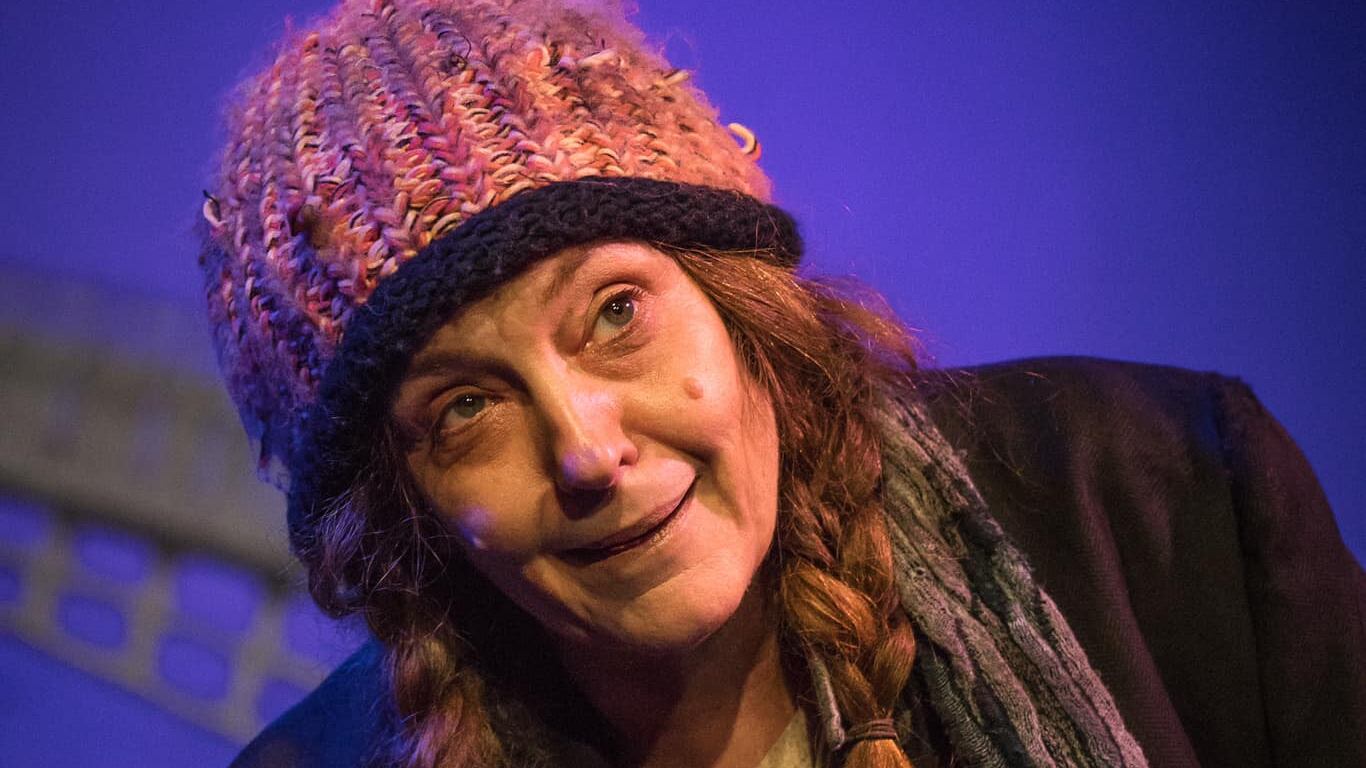On a cold December morning in 2002, lifelong Dubliner Myra McLaughlin (Luisa Sermol) awakens hungover following a booze-drenched marking of her 48th birthday.
After some nudging, she manages to rouse herself and trudge to work, which for her means begging for change next to the Ha’penny Bridge. In between busking and cursing out pedestrians who won’t grant her the dignity of eye contact, Myra tells us, the audience, of her life and how she came to be the drunken, destitute derelict we now see before us.
Perhaps the most surprising thing about Myra’s Story, written by Brian Foster and now being staged by the Corrib Theatre (and directed by Gemma Whelan), is how ordinary it is. Myra recounts instances of first love, friendship, motherhood, trauma, recovery, loss and a lifelong battle with “the beast” of alcoholism that has preyed on her family for generations.
Throughout it all, even in the darkest of circumstances, Myra recounts her history with a searing wit and pitch-black sense of humor that can give the audience the respite of a laugh while underscoring the tragedies that have come to define her life.
Myra’s Story is presented minimally, with the only set decorations being a park bench worn down by time and a stencil of the bridge in the background. It lives and dies by Foster’s script and Sermol’s performance, both of which prove more than up to the task. Foster shifts tone so suddenly that some viewers might get whiplash, but it all feels earned and it’s clear the comedy is as integral to the telling as the heartbreak and bleakness of Myra’s situation.
By the same token, Sermol is eminently watchable as Myra. She switches gears from impersonating quirky characters to reliving the worst moments of her life to trying to scrounge up enough coins for a cheap bottle of vodka without ever missing a beat.
There’s a vibrant immediacy to her performance, which hammers home the idea that although Myra herself is fictional, there’s an immutable truth to her story. Ultimately, it’s Myra’s humanity, encompassing all the joys and pains of her life, that makes the show sing.
There’s significance in Corrib’s choice to stage Myra’s Story; it’s not only a show about stigmatization and isolation (themes very familiar to survivors of the COVID-19 pandemic), but more specifically, it’s a show about how we treat the unhoused.
Like all major cities, Portland has struggled with its homeless population, both the rising rates of transients and the community’s far from ideal response to their presence. Myra’s Story doesn’t pretend to offer solutions, instead acting as a plea for empathy and compassion for a vulnerable group.
As stated earlier, the circumstances of Myra’s life aren’t that unique, and anyone under the wrong circumstances can follow the same paths and make the same mistakes she did. Myra doesn’t ask for pity or forgiveness, but for understanding, for her story to be heard. And it’s definitely worth hearing.
SEE IT: Myra’s Story plays at 21ten Theatre, 2110 SE 10th Ave., 503-389-0579, corribtheatre.org. 7:30 pm Thursday-Saturday, 2 pm Sunday, through May 28. $15-$35. 15+.
